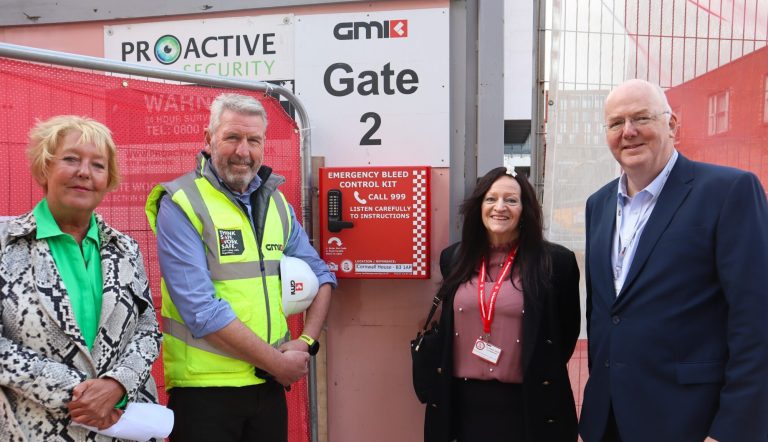The Royal Society for the Prevention of Accidents (RoSPA) has crowned the winner of its Fall Prevention Trophy following a virtual event this week that saw three shortlisted companies go head-to-head for the industry accolade. L’Oréal Pune, based in India, were awarded the top trophy following a vote by event attendees, comprised of award winners from the RoSPA 2024 awards scheme. The other two shortlisted companies were support services company Compass Group Healthcare sector, and engineering firm Jacobs Field Services – who were both commended. RoSPA’s Fall Prevention Trophy seeks to draw on best practice and showcase innovation around fall prevention, both by selecting a high-performer as the overall trophy winner, and also sharing advice and learning on the subject with the wider awards community as part of the selection process. L’Oréal Pune’s three-step initiative saw a communication campaign that saw all its workforce take RoSPA’s Fall Fighter course, the formation of an exemplary risk assessment strategy and the successful implementation of L’Oréal’s Safe@Work-Safe@Home programme. The programme, which seeks to take the lessons learned from occupational health and safety into homes and communities, was rolled out to over 2,500 people on the Pune area, including orphanages and assisted living centres. L’oreal Pune’s main objectives included site surveys of old age homes and identification of STF improvement opportunities, inspections by in-house tech experts and a steady commitment to the Fall Fighters programme. This holistic approach was especially for combatting the high rate of slips, trips and falls (STP) within the over 65 age bracket, whereby Pune factory workers pledged themselves “Fall Fighters” (a RoSPA-developed slips, trips and falls-prevention course). Mayur Raut, Head of EHS and Facilities at L’Oréal – Pune Factory, said: “We are incredibly proud to have won RoSPA’s Fall Prevention Trophy and commend the other shortlisted organisations. At L’Oréal, “people” are at the heart of everything we do, and by talking about safety at home and passing on effective solutions we learn at work to a wider community is a great way to reduce the chance of accidents. With fall prevention in particular, our initiatives have helped reach thousands of people and equip them with the necessary knowledge and awareness to live more safely – and we are grateful that our actions have been acknowledged internationally.” Faiza Patel, Assistant Manager (EHSF) at L’Oréal – Pune Factory, said: “I thank the leadership at L’Oréal for ensuring we grow stronger together, rallying towards one vision of making workplace and community safer and discovering innovative ways to do it while adhering to nonnegotiable health and safety standards. We are always determined to challenge the status quo and demonstrate that “CARE” can be done differently. This recognition by RoSPA is a testament to our approach in ensuring everyone feels safe and valued as employees, families, partners and stakeholders.” Barry Oliver, Group Executive for Health & Safety at Berkeley Group Holdings Plc, said: “At Berkeley Group we are committed to providing the best possible health and safety for our staff, supply chain and customers, so we are delighted to see this dedication to care echoed within L’oreal’s Pune plant, and beyond its factory’s walls. We were particularly impressed to see the high level of inspiring collaboration and teamwork, where teams of Fall Fighters responsibly showcased health and safety procedures among their friends, families and other societal groups, creating a great ripple effect among the surrounding community.” Matt Cryer, Head of Awards, said: “This year, the shortlisting for the 2024 RoSPA Fall Prevention Trophy saw a wide range of exceptional approaches, initiatives and innovations being delivered by RoSPA Award entrants and this variety was reflected in our shortlisted candidates. “Congratulations to our overall 2024 winner L’Oréal Pune for their outstanding presentation and to those who took part in the webinar and contributed to the voting process and to Compass Group Healthcare Sector and engineering firm, Jacobs Field Services Limited, who also showed exceptional dedication to fall prevention.” Also present at the virtual event was Jules Robinson, RoSPA’s Fall Prevention Lead and former winner of the trophy in her previous role at housing provider, Trent & Dove. Jules said: “L’Oreal Pune have done a fantastic job of showcasing the impact that fall prevention training has inside and outside of the workplace. Using Fall Fighter training, staff learned how to protect family, friends and their wider community from the serious consequences of falls, the second leading cause of accidental death globally. “By sharing their lived experience and the impact of falls on their loved ones, employees were better able to relate to the risks and motivated take action with their new knowledge to help those most vulnerable.” Building, Design & Construction Magazine | The Choice of Industry Professionals














